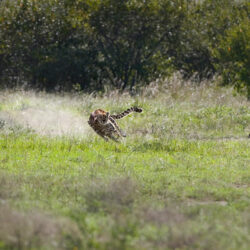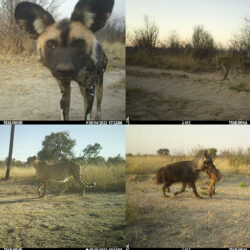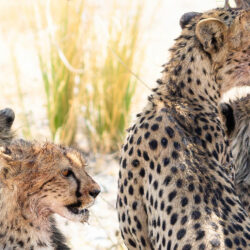Well-Equipped and Running Again at the CCF Genetics Laboratory
-
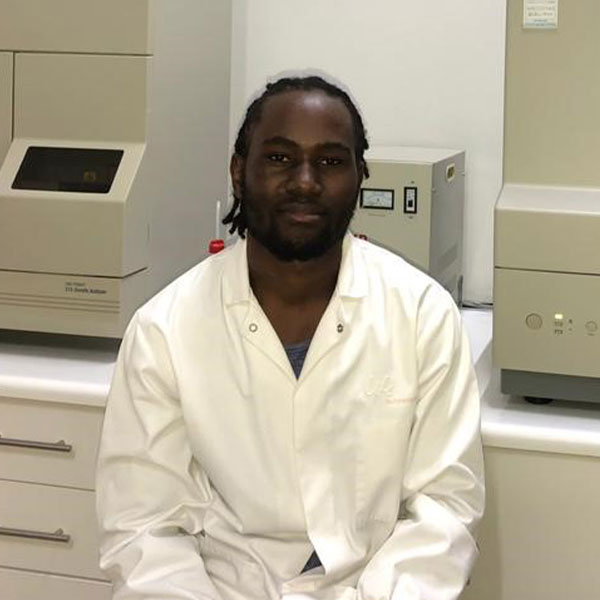
- by Hafeni Hamalwa January 25, 2022
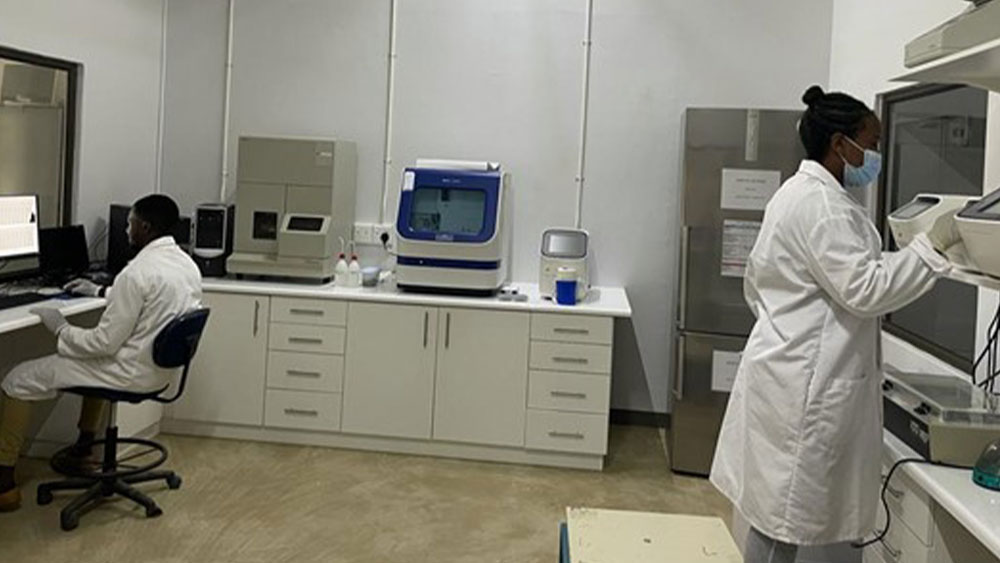
About 44 km outside of the small town of Otjiwarongo at the Cheetah Conservation Fund is a state-of-the-art genetics laboratory. Our genetics laboratory mainly focuses on, but is not limited to, conservation genetics research on cheetahs. Our laboratory is currently equipped with a genetic analyser, a spectrophotometer, thermocyclers both for real-time and conventional PCR and other equipment necessary for laboratory work.
With our team fully vaccinated against COVID-19 by mid-July, we were all ready and excited to transition from isolated time-share work schedules to full-time in person work in the laboratory again. That was until our 3130 Genetic Analyser, which had been in use since 2014 (when Thermo Fisher Scientific; then called Life Technologies, donated the refurbished analyser to us), gave up on us for good.
The old 3130 analyser had started to show signs of weakness since the beginning of the year when we started experiencing more and more troubles with our microsatellite and sequencing analysis. So, thanks to a budget designated to the upgrade of the laboratory (stay tuned for another post on this) we had already purchased a brand new 3500 Genetic Analyzer. The 3500 Genetic Analyzer is an 8-capillary sequencing instrument, compared to our old genetic analyser, which only had 4 capillaries. This simply means that we were now going to be able to run twice as many samples at the same time, either microsatellites (mostly for individual identification) or sequencing (mostly for species identification). So, we were prepared and looking forward to starting using the 3500.
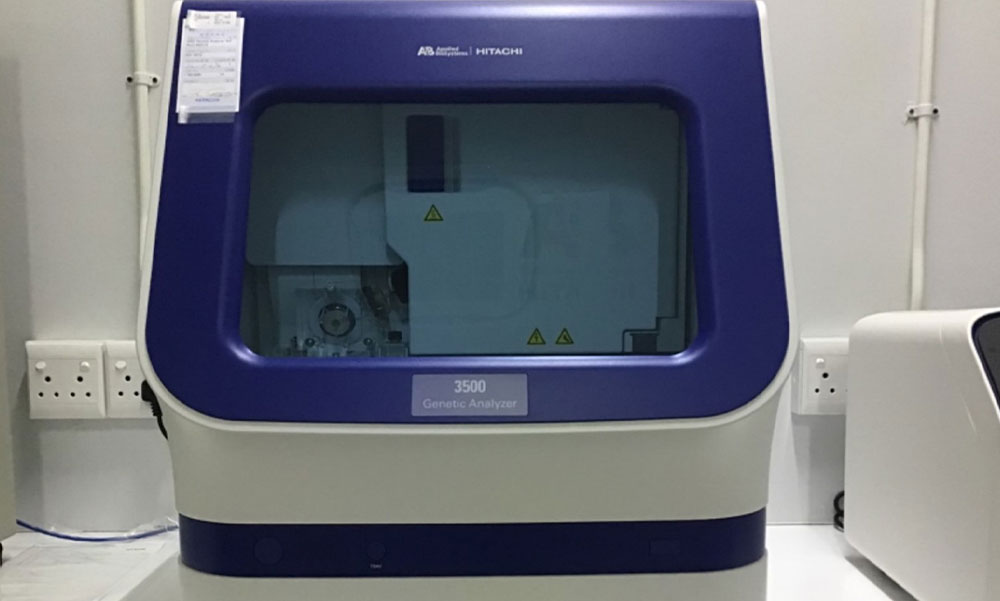
Unfortunately, due to Covid complications we had to learn to be patient: a Covid lock-down meant that the electric upgrade needed for the safety of the 3500 Genetic Analyzer was delayed by two months; and the difficulties experienced by supply chains meant that the reagents required for the set-up of the new analyser, which normally would arrive within a week even in our remote location, took another two months to arrive. But then, beginning of November, things finally fell into place. The reagents arrived, and the installation could be scheduled. Dr. Anne Schmidt-Küntzel, the head of the laboratory, was scheduled to be in Namibia at that time due to a lucky coincidence, Nerea Sanchis had just started in the laboratory the week before, and Michelle Magliolo flew in specifically to be there at the time, ahead of her official start in the laboratory. Julia Zumbroich, and Hafeni Hamalwa were already on-site as they had been holding the fort throughout the pandemic.
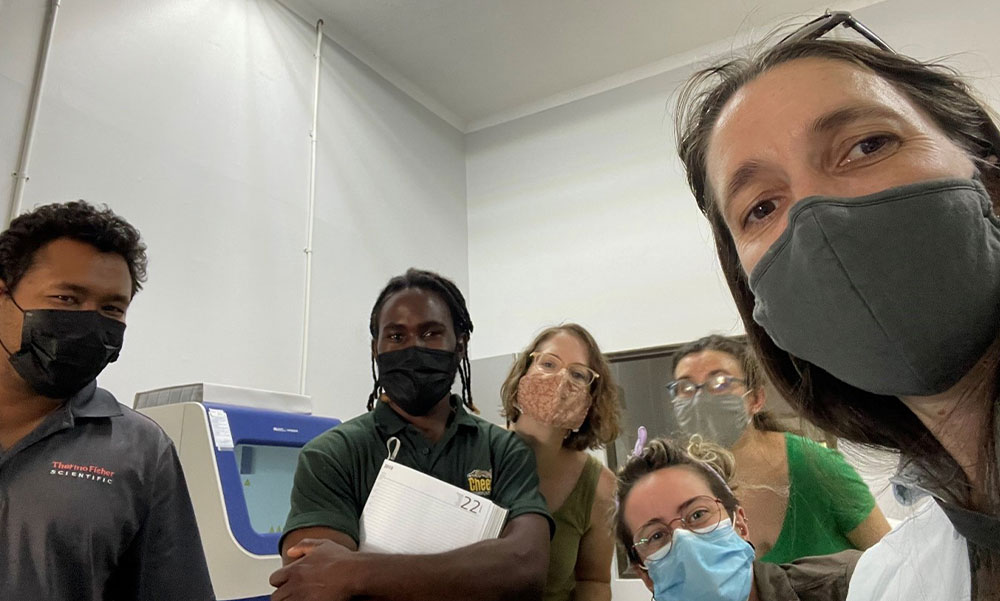
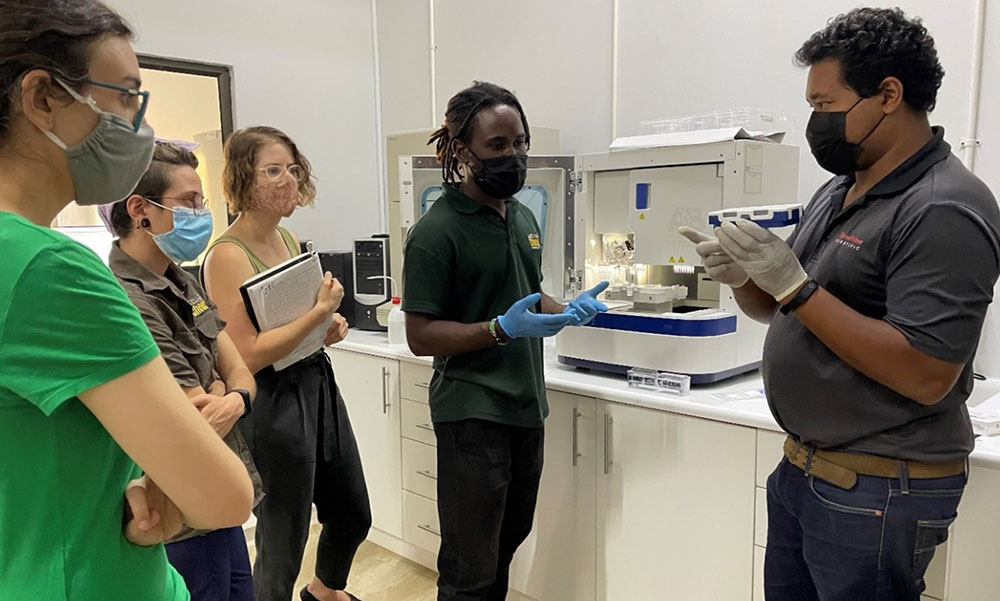
So, on November 2, 2021, the day before the arrival of Thermo Fisher Scientific Field Service Engineer Darryl Barron, there was a big buzz in the CCF genetics laboratory: among some rearrangements, the old equipment was moved out, and the boxes needed for the new analyser were carried in. We were very excited for the new beginning. Darryl installed and set up our 3500 genetic analyser and showed us some basics on how to handle the analyser.
Jashan Gokal, Thermo Fisher Scientific Field Application Scientist, who had been very involved in helping with the supply issues, even flew in on a Saturday to start the training on that weekend so that we wouldn’t waste any more precious time before being able to proceed with laboratory work. Other than Nerea, none of us had worked previously with a 3500 Genetic Analyzer, however we understood the theory as it is the same as for our old analyser. Jashan spent 3 days at the Genetics laboratory at the CCF where he gave us a detailed training on how to use and maintain the new machine.
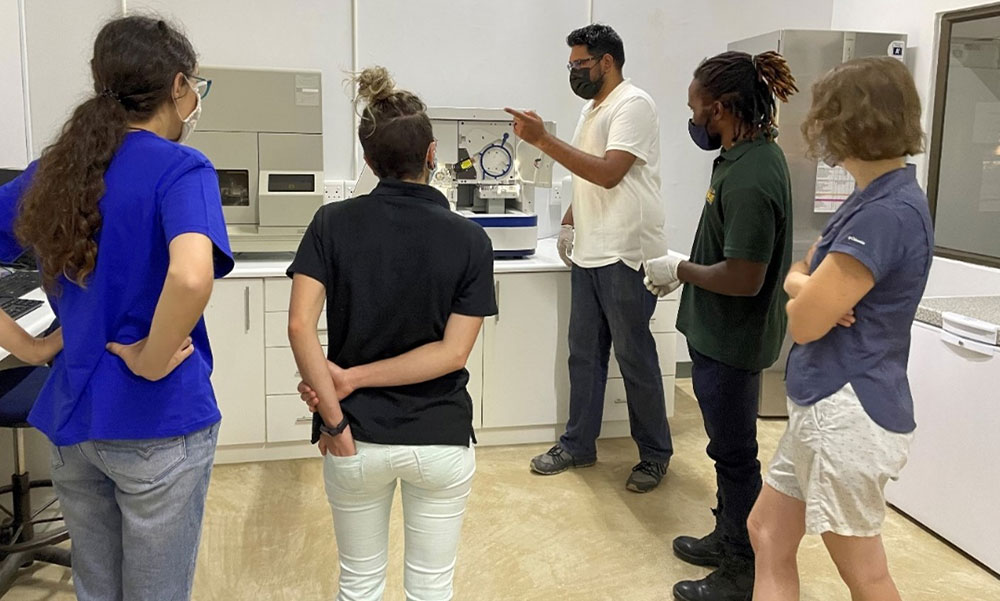
With our genetics analyser finally installed we are happy to announce that our genetics laboratory is now fully functional again. This allows us to pick up on our laboratory work and continue many projects that were on hold for what felt to us like an eternity, some of which have sensitive due dates. Additionally, our laboratory allows us to train students and interns so they can gain a deeper understanding of the importance of conservation genetics and be able to finalize their internship reports for university. Cheers to our new genetic analyser!!
Related Reading
-
October 15, 2024
The Ecology of the Landscape Down to the Smallest Part

